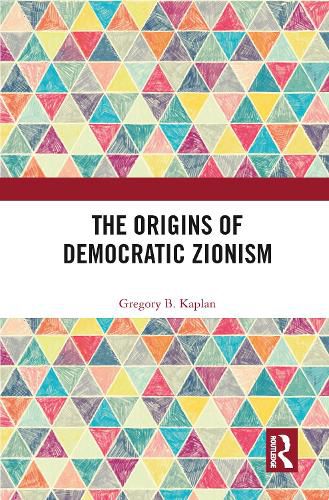Readings Newsletter
Become a Readings Member to make your shopping experience even easier.
Sign in or sign up for free!
You’re not far away from qualifying for FREE standard shipping within Australia
You’ve qualified for FREE standard shipping within Australia
The cart is loading…






This book is the first to link the modern appreciation for democratic freedom directly to Jewish political thought in seventeenth-century Amsterdam. The modern appreciation for democratic values is often assumed to have its roots in Classical thought. However, democracy has taken various forms in its progression to the governance many countries now employ. Working in dialog with Protestants, Jewish thinkers voiced the first Modern appeal for the reestablishment of a Jewish polity in the Holy Land. This appeal was grounded in a vision of a Jewish state governed by individual liberty and popular consent, which could be defined as a democratic Zionism.
The book focuses on influential rabbi Saul Levi Morteira (b. ca. 1590-d. 1660), as well as two of the most renowned members of his congregation, Baruch Spinoza and Miguel de Barrios. Unlike contemporary Catholic and Protestant thinkers, these three intellectuals found democratic values in an Old Testament polity that came to be revered as the Hebrew Republic. The book explores the trajectory by which this democratization of the Hebrew Republic evolved in the writings of Morteira as an alternative to divine-right rule. It then shows that, in spite of their divergent views toward practicing Judaism, Spinoza and Barrios disseminated Morteira’s democratic ideas and promoted the Hebrew Republic as a model polity for a post-medieval political order.
This book will be of great use to scholars of Judaism and Jewish philosophy in the modern era, medieval and early modern Spanish literature, as well as religious, political and intellectual history.
$9.00 standard shipping within Australia
FREE standard shipping within Australia for orders over $100.00
Express & International shipping calculated at checkout
This book is the first to link the modern appreciation for democratic freedom directly to Jewish political thought in seventeenth-century Amsterdam. The modern appreciation for democratic values is often assumed to have its roots in Classical thought. However, democracy has taken various forms in its progression to the governance many countries now employ. Working in dialog with Protestants, Jewish thinkers voiced the first Modern appeal for the reestablishment of a Jewish polity in the Holy Land. This appeal was grounded in a vision of a Jewish state governed by individual liberty and popular consent, which could be defined as a democratic Zionism.
The book focuses on influential rabbi Saul Levi Morteira (b. ca. 1590-d. 1660), as well as two of the most renowned members of his congregation, Baruch Spinoza and Miguel de Barrios. Unlike contemporary Catholic and Protestant thinkers, these three intellectuals found democratic values in an Old Testament polity that came to be revered as the Hebrew Republic. The book explores the trajectory by which this democratization of the Hebrew Republic evolved in the writings of Morteira as an alternative to divine-right rule. It then shows that, in spite of their divergent views toward practicing Judaism, Spinoza and Barrios disseminated Morteira’s democratic ideas and promoted the Hebrew Republic as a model polity for a post-medieval political order.
This book will be of great use to scholars of Judaism and Jewish philosophy in the modern era, medieval and early modern Spanish literature, as well as religious, political and intellectual history.